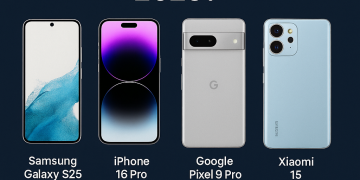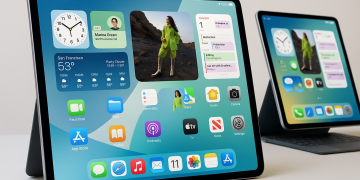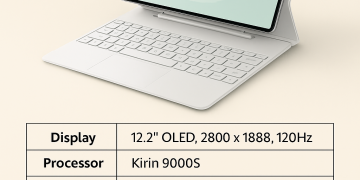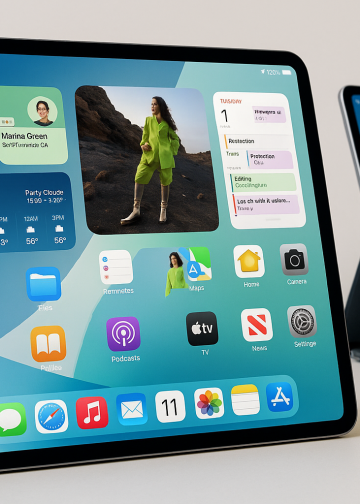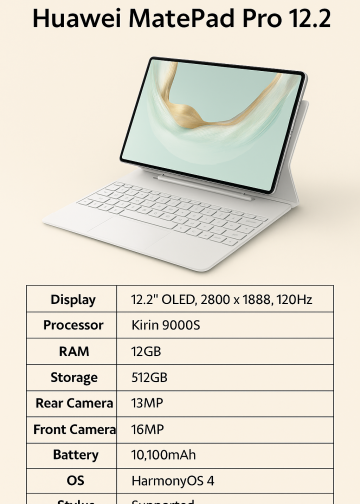Introduction: Welcome to the Future of Work
Keywords: tech careers, future tech jobs, digital workforce USA
What will your next job look like? In the past, picking a career often meant following a well-trodden path—doctor, teacher, lawyer, maybe an engineer. Fast forward to the digital age, and tech careers are rewriting every rule. If you’re entering the workforce or considering a change, the explosion of technology across every industry means the hottest opportunities might be in fields that didn’t exist a decade ago.
From Silicon Valley to small-town America, the digital workforce USA is on the rise, transforming everything from healthcare and finance to entertainment and transportation. But which jobs are really in demand? What skills will employers be desperate for in 2030 and beyond? If you want a secure, rewarding, and future-proof career, it’s time to discover the world of future tech jobs and the trends shaping technology employment.
The Digital Revolution: Why Tech Careers Matter Now
Keywords: tech careers, technology employment, IT career trends
First, let’s get one thing straight: every company is a tech company now. Whether you’re making pizzas or launching rockets, digital tools and data drive decision-making, customer engagement, and innovation. As automation, artificial intelligence, and data analytics become the norm, technology employment is no longer limited to IT departments—it’s everywhere.
Here’s why tech careers are hotter than ever:
- Digital transformation is creating demand for people who can build, manage, and secure technology.
- Remote work and global collaboration rely on seamless IT infrastructure and smart cloud solutions.
- Cybersecurity threats mean companies need digital defenders just as much as software developers.
- New technologies emerge every year, making lifelong learning a necessity (and an opportunity).
No matter your background, there’s likely a future tech job that fits your interests, strengths, and ambition.
IT Career Trends: The Top Skills in Demand
Keywords: IT career trends, tech careers, digital workforce USA
So what are employers really looking for? According to the latest IT career trends, these are the skills and traits that set candidates apart in the digital workforce USA:
- Coding & Software Development: Whether it’s Python, JavaScript, or Swift, programming languages are the new global language.
- Data Analysis & Visualization: Companies want people who can turn numbers into actionable insights.
- Cybersecurity: Protecting data, networks, and users is a mission-critical function.
- Cloud Computing: Amazon Web Services (AWS), Microsoft Azure, and Google Cloud are the backbone of modern business.
- AI & Machine Learning: Training computers to recognize patterns, make predictions, and automate decisions is the bleeding edge of tech.
- UX/UI Design: As tech becomes more complex, user-friendly design is crucial.
- Project Management: Tech needs leaders who can guide teams, manage timelines, and keep projects on track—especially in agile, remote settings.
The best part? Many of these skills can be learned through online courses, coding bootcamps, or certificate programs—no four-year degree required.
Future Tech Jobs: What’s Hot in 2025 and Beyond
Keywords: future tech jobs, technology employment, tech careers
Let’s get specific. Here are some future tech jobs you’ll see dominating the next decade—and maybe beyond:
1. Artificial Intelligence & Machine Learning Specialist
AI isn’t just for researchers anymore. Companies in every sector need people who can build, train, and maintain AI systems—everything from chatbots to self-driving cars. This field is booming and offers some of the highest salaries in tech.
2. Data Scientist & Data Engineer
“Big Data” is more than a buzzword—it’s the heart of business strategy, healthcare, and government. Data scientists build models to forecast trends, while data engineers create the systems that manage and process massive datasets.
3. Cybersecurity Analyst
With cyber threats on the rise, cybersecurity jobs are among the most future-proof of all. Analysts protect networks, identify vulnerabilities, and respond to incidents in real time. As long as there are hackers, there will be jobs for digital defenders.
4. Cloud Solutions Architect
Nearly every major company is moving to the cloud. Architects design, build, and optimize cloud infrastructures that are secure, scalable, and cost-effective. This role bridges tech and business strategy.
5. Robotics Engineer
From manufacturing robots to surgical assistants and warehouse automation, robotics is exploding. Engineers with skills in mechanics, electronics, and software are in high demand.
6. Blockchain Developer
Beyond Bitcoin, blockchain technology powers secure, transparent record-keeping for everything from finance to supply chain. Developers are needed to build decentralized apps (dApps), smart contracts, and innovative new platforms.
7. Internet of Things (IoT) Solutions Engineer
Smart devices are everywhere. Engineers create systems that connect, monitor, and automate everything from homes to factories to cities.
8. UX/UI Designer
As tech gets more complex, the demand for designers who can make products intuitive, accessible, and beautiful keeps rising. Think websites, apps, wearable devices, and even smart home interfaces.
9. IT Project Manager / Agile Coach
It’s not just about technical skills—projects still need people to coordinate, motivate, and deliver. Project managers with tech savvy are essential, especially in agile, fast-moving teams.
10. Digital Health & Biotech Specialist
Healthcare and tech are merging fast. From telemedicine to wearable health devices to personalized medicine, specialists who understand both worlds are in high demand.
The New Digital Workforce USA: Who’s Hiring, and Where?
Keywords: digital workforce USA, technology employment, IT career trends
If you think you have to move to Silicon Valley for a great tech job—think again. The digital workforce USA is everywhere. Remote work has opened up opportunities in every state, and major companies are now recruiting talent from coast to coast.
- Tech giants (Google, Amazon, Microsoft, Apple, Meta) still hire thousands every year—but they’re not alone.
- Healthcare, finance, retail, and logistics are all aggressively hiring tech talent to fuel their own digital transformation.
- Startups are thriving in places like Austin, Atlanta, Denver, and Miami—not just San Francisco.
- Government and public sector jobs in cybersecurity, data management, and digital infrastructure are growing fast.
In short, technology employment is the great equalizer—if you have the right skills, location is less important than ever.
Non-Technical Tech Jobs: More Than Just Coding
Keywords: tech careers, IT career trends, future tech jobs
Don’t love programming? That’s okay! The tech world needs all kinds of people:
- Technical Writers: Bridge the gap between engineers and users, creating documentation, tutorials, and help guides.
- Sales Engineers: Combine tech know-how with people skills to help customers solve problems and choose the right products.
- Product Managers: Oversee the development of products, from concept to launch, working with teams across business, design, and engineering.
- Digital Marketers: Use data and automation to reach new customers, analyze campaigns, and drive growth.
- Customer Success Managers: Help users get the most out of complex products, turning customers into loyal fans.
The best tech careers are as diverse as the workforce itself.
How to Prepare for a Tech Career: Steps to Success
Keywords: tech careers, technology employment, IT career trends
So how do you actually land one of these future tech jobs? Here are some proven strategies:
1. Learn Continuously
Tech is always changing. Online platforms like Coursera, edX, Udacity, and LinkedIn Learning let you learn at your own pace. Pick a specialization—AI, cybersecurity, cloud computing—and dive deep.
2. Build a Portfolio
Don’t just learn—build. Create projects on GitHub, contribute to open-source, or design a website or app. Hiring managers want to see proof you can solve real problems.
3. Get Certified
Certifications from AWS, CompTIA, Google, and Microsoft can give your resume instant credibility and help you stand out from the crowd.
4. Network and Join Communities
Join LinkedIn groups, attend (virtual or real-life) tech meetups, and participate in hackathons. Many job offers come from connections, not just applications.
5. Find a Mentor
A mentor can provide advice, encouragement, and insider knowledge about breaking into (and thriving in) the tech world.
6. Stay Current with Trends
Follow news from sites like TechCrunch, Wired, The Verge, and industry blogs. Understanding IT career trends helps you spot opportunities before they become mainstream.
7. Apply, Apply, Apply
Don’t wait for the “perfect” job listing. Start applying early and often. Every interview is a chance to learn and improve your story.
The Diversity Imperative: Why the Digital Workforce Needs You
Keywords: digital workforce USA, technology employment
Tech has a diversity problem—but it’s getting better. Companies realize that diverse teams build better products, spot problems faster, and serve a wider audience. The digital workforce USA is actively recruiting people of all backgrounds, ages, genders, and abilities.
If you don’t see people like yourself in tech, remember: your perspective is needed more than ever. From coding to customer service to leadership, bringing your full self to work makes tech—and the world—a better place.
The Human Side of Future Tech Jobs
Keywords: future tech jobs, IT career trends, tech careers
At the end of the day, tech careers aren’t just about computers—they’re about people. Every line of code, every algorithm, every breakthrough is made by humans solving real problems for other humans.
- AI is making medicine more precise and accessible.
- Data science is helping cities run smarter and safer.
- Cloud computing is connecting families and businesses around the globe.
- Cybersecurity protects not just companies, but communities and individuals.
Whatever your passion—helping others, solving mysteries, building things, teaching—there’s a role for you in the next wave of future tech jobs.
Real Stories: Meet the New Faces of American Tech
Keywords: tech careers, digital workforce USA
- Rosa, 27, Data Engineer: “I started out as a math teacher but took an online course in Python. Now I help my company turn raw data into business decisions.”
- Sam, 41, Cloud Solutions Architect: “After working in retail, I earned my AWS certification and landed a remote job designing cloud infrastructure for a hospital network.”
- Elijah, 22, Cybersecurity Analyst: “I joined a summer bootcamp after high school. Now I’m protecting a local government agency from real cyber threats every day.”
- Ava, 35, Product Manager: “I don’t code, but I love solving problems. Working with designers and engineers to bring new products to life is my dream job.”
The future of the digital workforce USA is diverse, creative, and driven—just like the country itself.
The Road Ahead: The Future of Technology Employment
Keywords: technology employment, IT career trends, future tech jobs
What will technology employment look like in 2035? Some experts predict jobs that haven’t even been named yet: quantum computing specialists, digital ethicists, augmented reality architects, and more. Others see a future where tech and humanity blend in entirely new ways.
One thing is certain: IT career trends will continue to evolve, and the most successful workers will be the ones who stay curious, adaptable, and open to change. Whether you want to code, design, analyze, or lead, the digital age is full of possibility.
External Links
- Bureau of Labor Statistics: Computer and IT Occupations
- CompTIA: IT Industry Outlook
- Code.org: Learn Computer Science
- LinkedIn Learning: Technology Career Courses
Call to Action
Are you ready to future-proof your career? Start building skills for the new digital age! Share your tech career goals or questions in the comments below, or subscribe to our newsletter for the latest on future tech jobs, IT career trends, and the evolving digital workforce USA. Don’t keep this guide to yourself—share it with friends who are thinking about their next move. The future is waiting, and you belong in it!
























